Richard Skeffington Welch was known throughout the Agency for his love of Greece and world travel, and he gained a reputation for being an excellent Greek linguist. While serving as CIA’s Chief of Station (COS) in Athens, Greece, he was assassinated as he and his wife were arriving home following a Christmas party.
At the time of his death, Dick Welch was the highest-ranking CIA officer killed in the line of duty. He was also the first Chief of Station to be murdered in a politically motivated assassination. He had received a promotion in November, and had celebrated his 46th birthday only nine days before his death. This is his story.
Early Years:
Dick was born in Hartford, Connecticut on December 14, 1929, the youngest of three children. His father left Wall Street after the crash of 1929 to write novels. Dick grew up in Providence, Rhode Island and graduated from a classics-oriented high school, where he studied Greek and Latin. His field of concentration at Harvard was Greek History and Literature. He also ran on the track and cross-country teams.
Life at CIA:
In the early 1950s, while a 21-year-old senior majoring in Near Eastern History and Greek at Harvard, Dick wrote to a CIA recruiter about his interest in working for the Agency. He joined the CIA in July 1951. The first assignment to Europe began in February 1952. During this time, he worked to convert his knowledge of classical Greek language into professionally useful modern Greek, eventually developing a facility which matched that of many Greek-Americans and astonished them and other native Greek speakers.
At that time, political and strategic stakes were higher in Europe than they are today. Dick took full advantage of his language abilities, his rapidly developing operational skills, and his extensive knowledge of European politics. He remained in Europe for three consecutive tours. In 1958, he was transferred to Washington, where he was assigned to work on Turkish affairs.
Back at CIA headquarters, and interested in shedding his European focus, at least for a little while, Dick made a 10-year commitment to serve in the Western Hemisphere Division (now the Latin America Division) in CIA’s Directorate of Operations. He had assignments in several South American countries, including a stint as a Chief of Station.
In the spring of 1975, at the age of 45, Dick was asked to go to Greece to lead the Station there. He agreed immediately, telling friends that, for him, going to Greece was like going home. “I’m pinching myself to have a chance to go to the country that I really love,” friends remember him saying.
His Final Mission:
Greece had changed since Dick left Europe in 1958; but so had he. Dick plunged into the station’s responsibilities with a characteristic mixture of enthusiasm and caution.
Dick had been extremely careful about personal security while in Latin America, but he was more confident in Europe. However, Dick’s identity was revealed in foreign publications, endangering the safety of him and his family.
On the night of December 23, 1975, Dick and his family attended a Christmas party at the American Ambassador’s residence. Upon returning home, Dick exited the car to open the main gate. A man appeared amid the darkness and called to Dick. As Dick turned, the man shot him. The wound was fatal.
Five days after the attack, a terrorist group called “Revolutionary Organization 17 November” claimed responsibility for Dick’s death. It wasn’t until 2003—almost 28 years later—that the people responsible for the murder of Dick Welch and several other foreign diplomats were caught. They were sentenced for the murders of the diplomats, but escaped conviction for Dick’s death because of a 20-year statute of limitations.
Dick was 46 years old when he died. He was survived by his wife (who was unharmed in the attack) and his three children: a daughter and two sons. Dick was posthumously awarded the Distinguished Intelligence Cross and, at President Gerald Ford’s order, he was buried in Arlington National Cemetery.
On the 25th anniversary of Dick’s murder, the US Embassy in Athens dedicated a bronze plaque at his former residence, which now houses the US Marine Security Guard detachment. The plaque reads:
“In memory of Richard S. Welch, slain at this place December 23, 1975, in the service of his country. Personal sacrifice is the price of freedom.”
Dick’s murder and those of several other foreign diplomats led to passage of the Intelligence Identities Protection Act of 1982. The law makes it illegal to reveal the name of an agent who has a covert relationship with an American intelligence organization.

